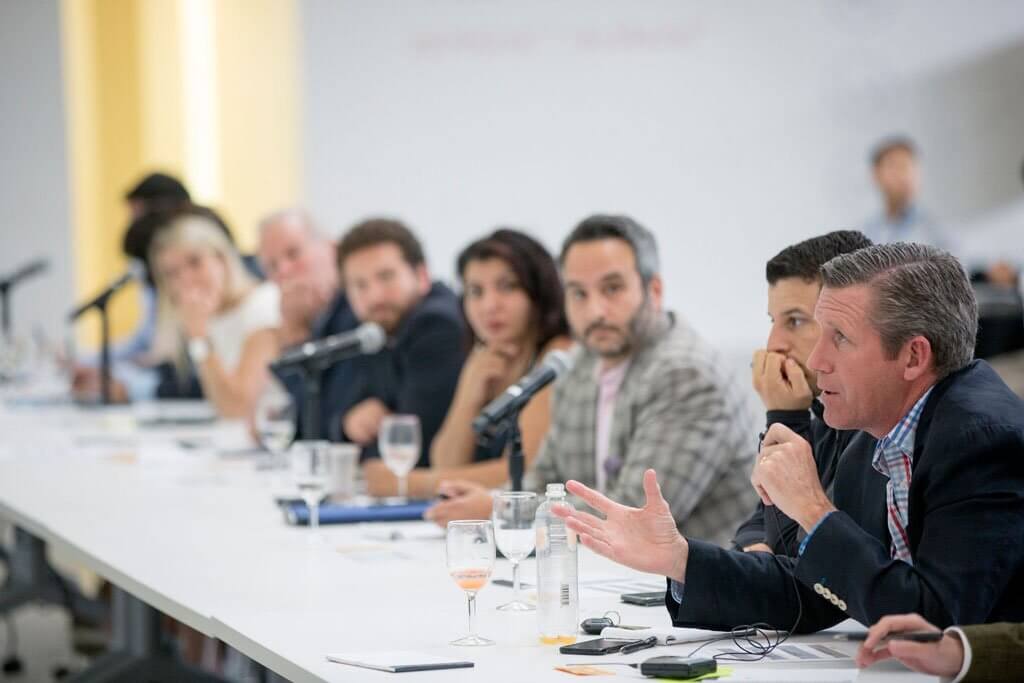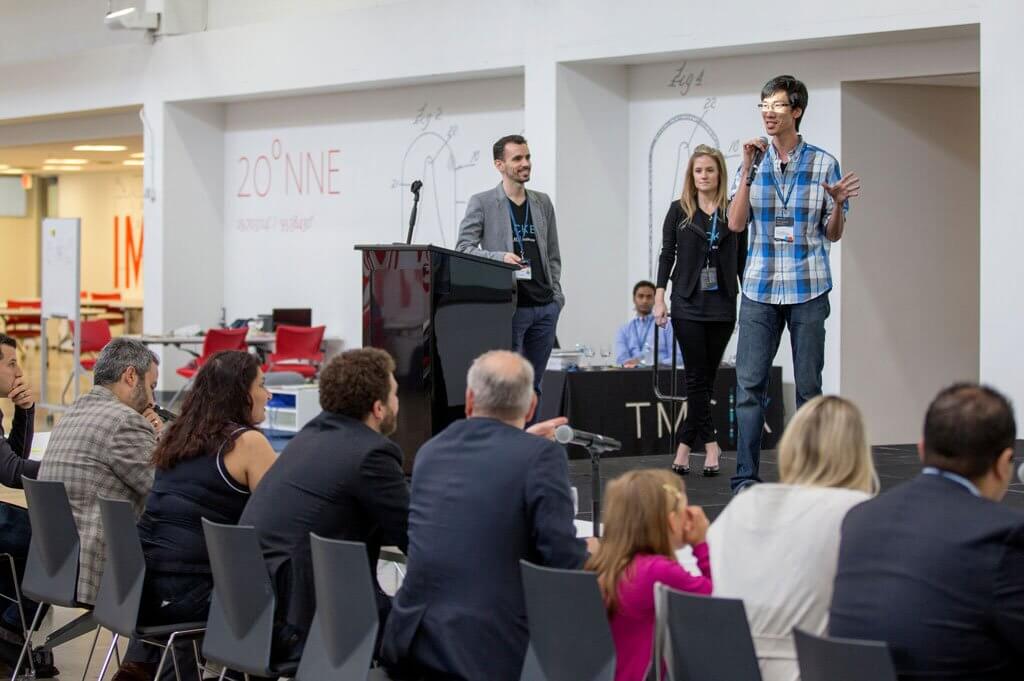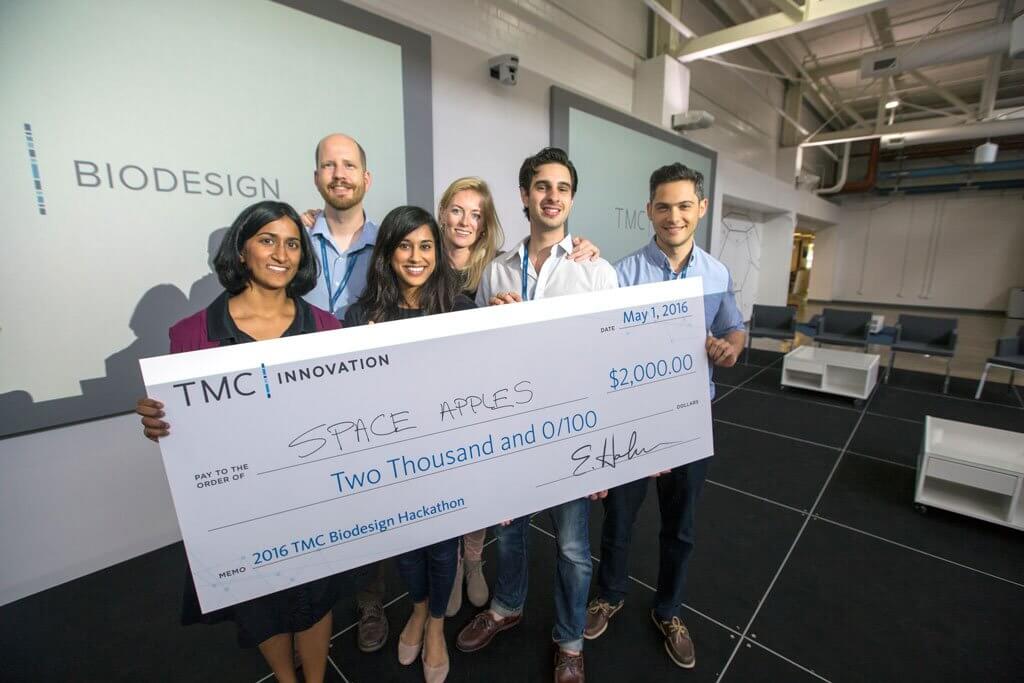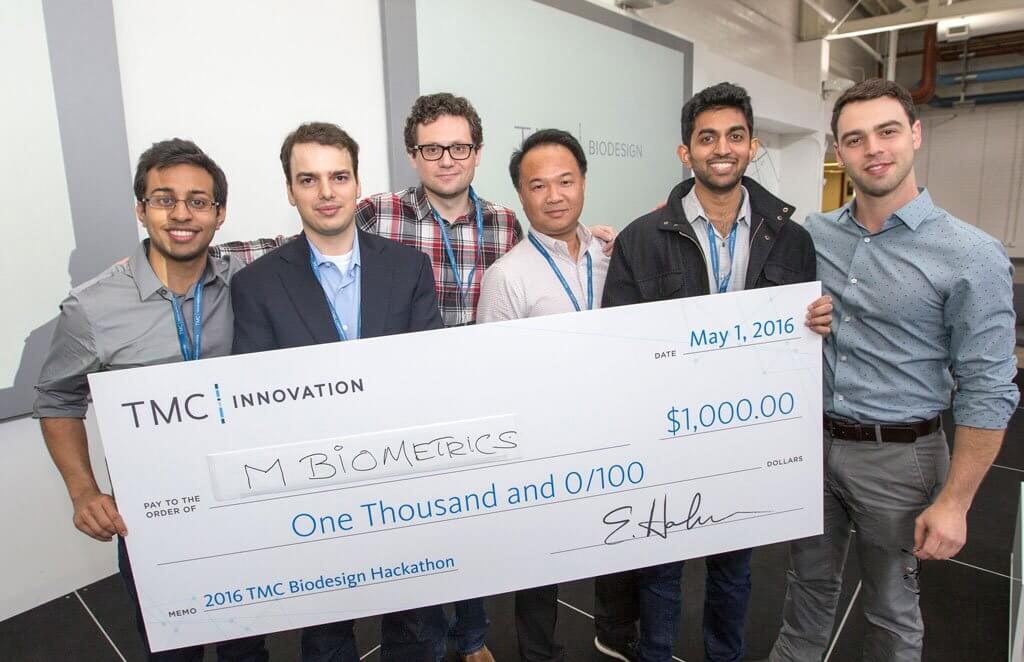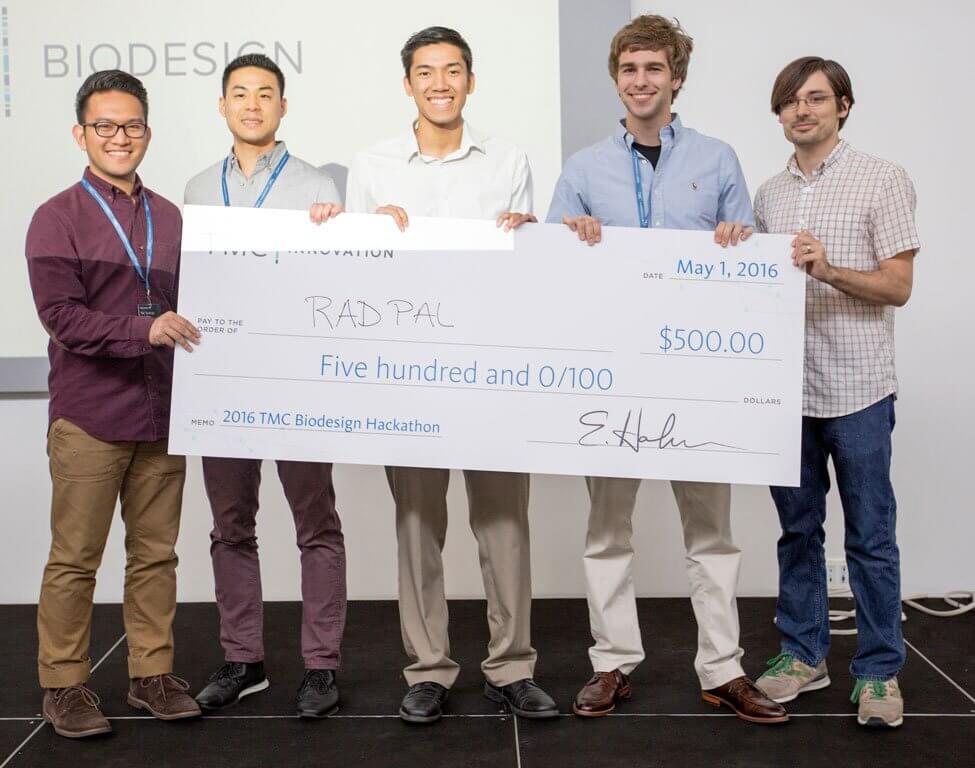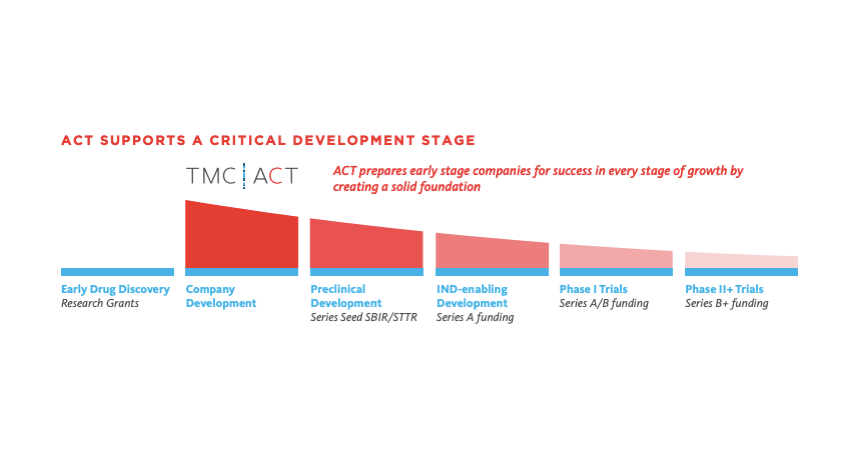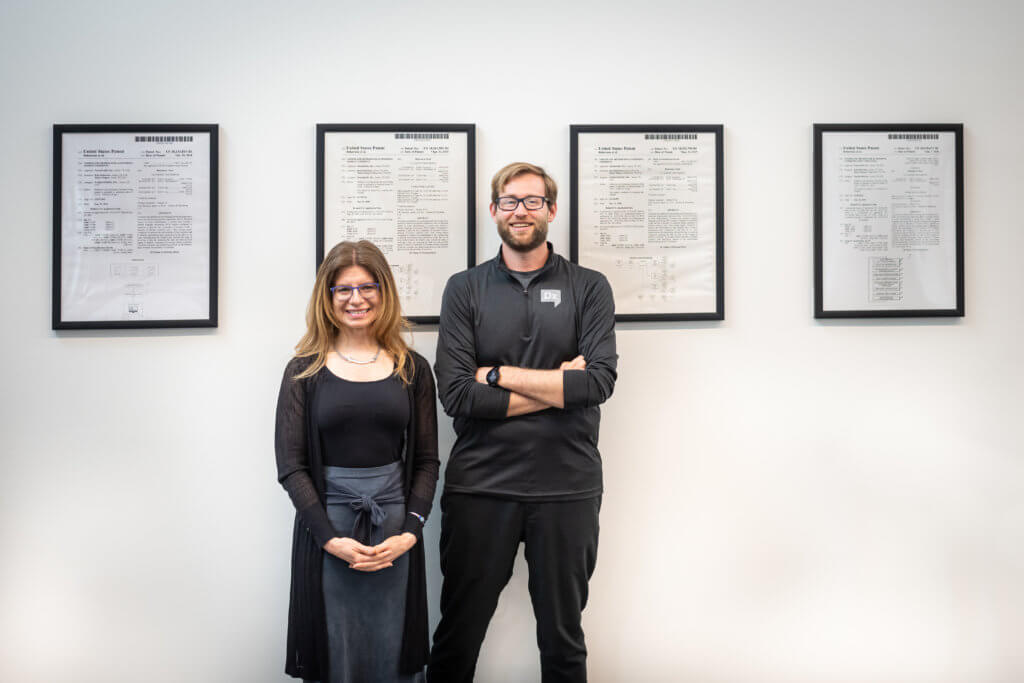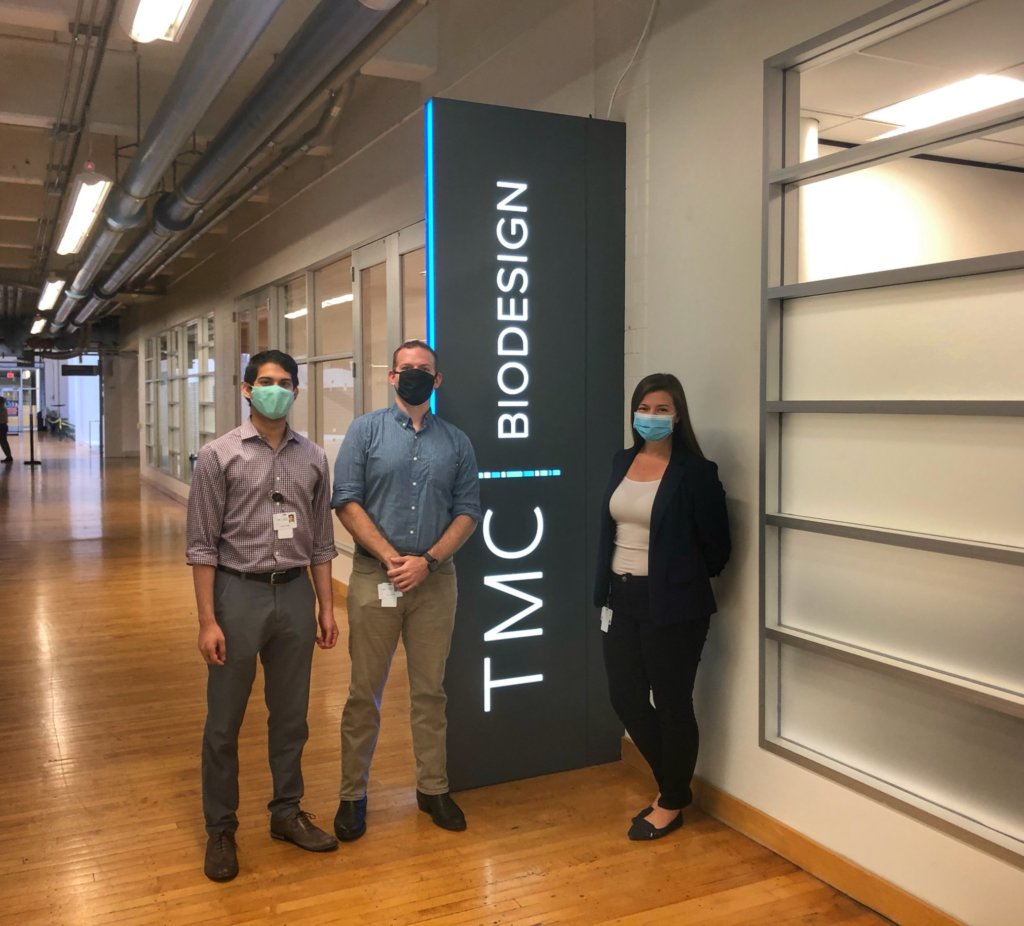Biodesign hackers tackle health needs over the weekend
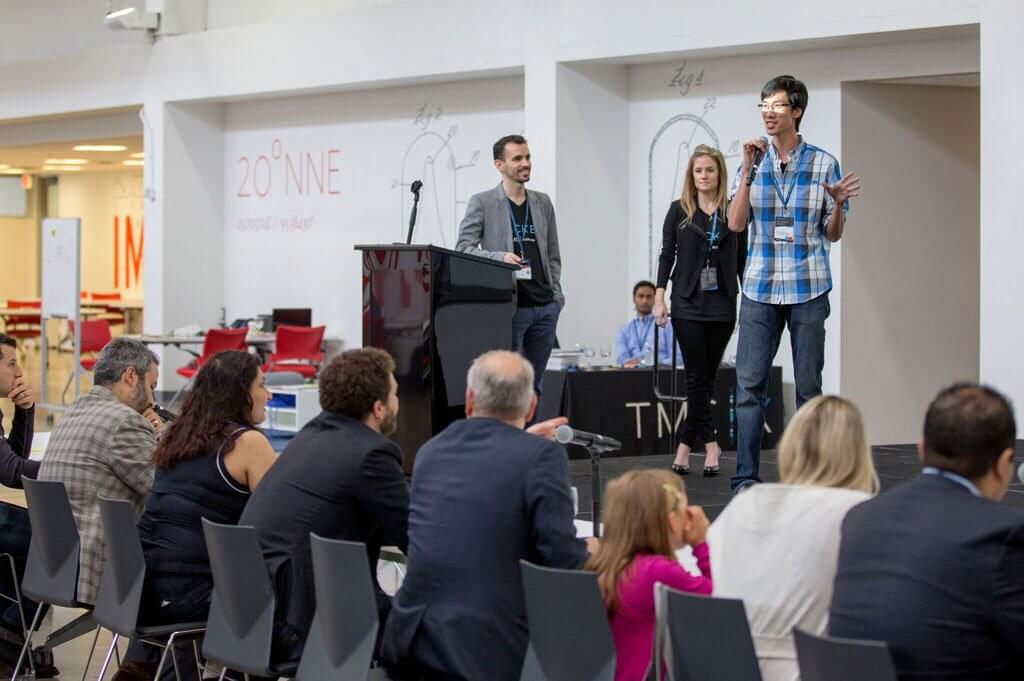
Surgeons and radiologists wear a lead apron during surgery to keep themselves safe from X-rays and radiation, and while that apron may only weigh 15 pounds, those physicians wear the apron for hours at a time and are often bending over the patients.
This repeated behavior becomes a pain in the neck—and ultimately in the back, for physicians.
Enter 5 Tries Design, one of the eight teams vying for an award at TMC Biodesign’s first-ever hackathon, which took place April 29 to May 1 at TMCx.
The team, made up of Matthew Peña, Jeric Bautista, Andrew Richards, Linh Vu and Kevin Hsu, developed a device called RadPal that fit under the apron to “take the load off,” as they said in their pitch presentation.
Not only was their device a hit with the audience, but also with the 10 judges, including William Cohn, M.D., a cardiologist with the Texas Heart Institute, who is also a serial entrepreneur and venture capitalist.
“This is a great solution and definitely a much-needed technology,” Cohn told the team following its pitch.
Teams rapidly addressed this unmet health care need over the weekend as well as three others needs, including mental health triage in emergency rooms, fast patient information access for emergency medical services and how to avoid blood clots in chest tubes following heart surgery.
The hackathon gathered 40 hackers, half from the community and half who were showcasing their skills in an attempt to be chosen for the new class of Biodesign fellows. The fellows will be notified later in May.
“The solutions blew us away,” said Sandeep Burugupalli, Biodesign’s business strategist. “I’m really happy with how it went, and I’m excited about the Biodesign Fellow program next year.”
In the end, three teams were awarded prizes: $2,000 to SpaceApples, which created a chest tube; $1,000 to mBiometrics, an application to determine who a patient is and their medical history; and $500 to 5 Tries Design for its RadPal lead apron device.
Bautista, a mechanical engineer with 3D printer startup Re:3D, said the weekend was fun.
“We got good feedback from the radiologists and cardiologists in attendance,” he said. “This also enabled us to leverage our skills to come out with a prototype that doctors have an interest in being an actual product.”
More in-depth coverage of the TMC Biodesign Hackathon will be included in the June issue of TMC Pulse, on stands June 1.


